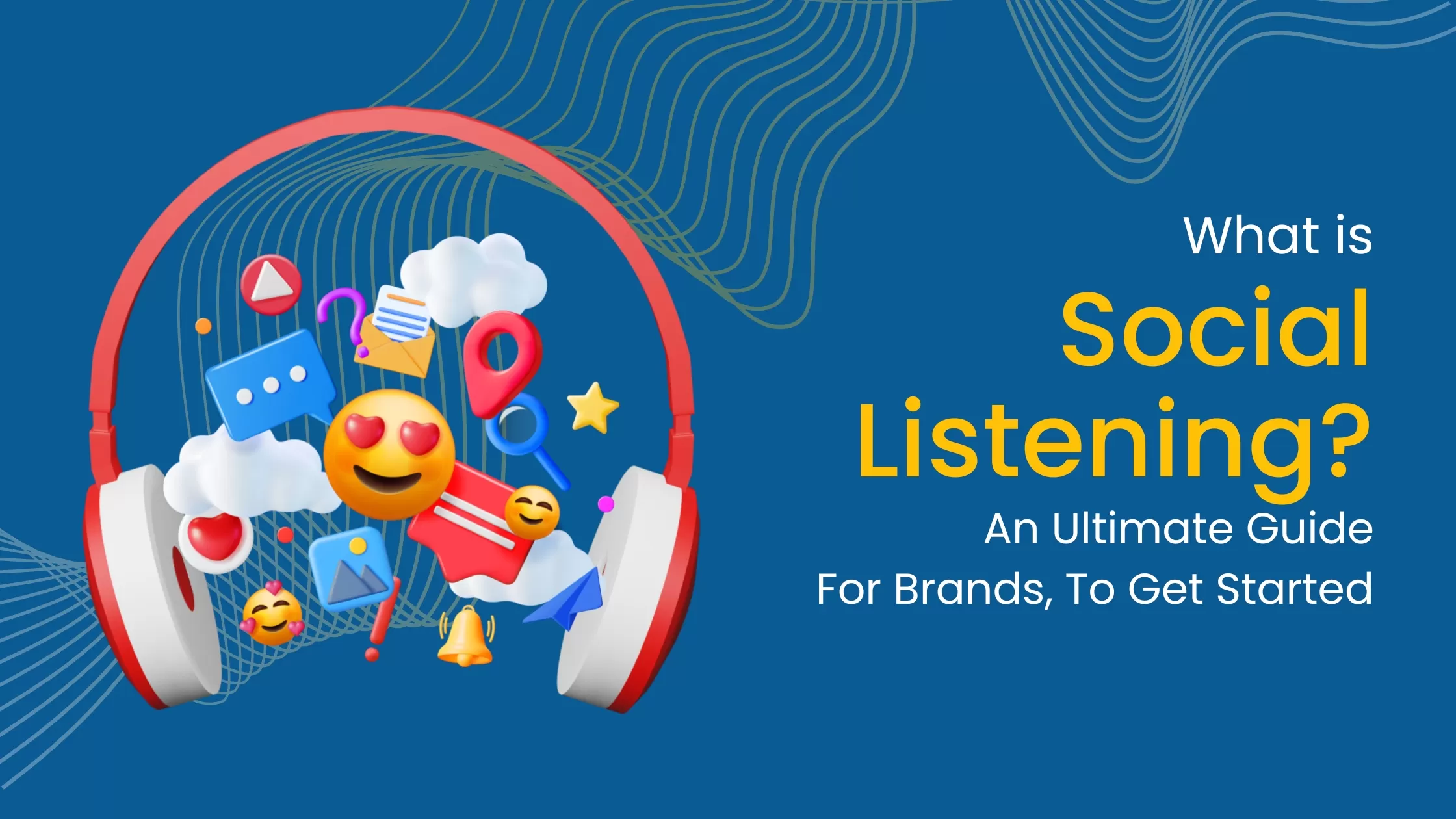09 December
Cracking the SEO Code: Best Practices for Search Engine Rankings
published
July 23topics
#SEO
Search engine optimization (SEO) is the process of improving the visibility and relevance of a website or a web page in the organic (unpaid) results of a search engine. SEO is essential for any business that wants to attract more traffic, leads, and customers from the internet. However, SEO is not a one-time thing. It is an ongoing process that requires constant monitoring, analysis, and adaptation to the changing algorithms and user behaviors of search engines. What works today may not work tomorrow, and what works for one industry may not work for another.
That's why it's important to stay updated on the latest SEO trends and best practices that can help you optimize your website and content for the search engines in 2023. In this blog post, we will share with you eight SEO best practices that you should follow to increase your organic site traffic in 2023.
1. Identify the right keywords
- Keywords are super important for SEO. They are the words and phrases that users type into the search box to find what they are looking for. Keywords help search engines understand what your website and content are about and match them with the user's intent.
- To identify the right keywords for your website and content, you need to do some keyword research. Keyword research is the process of finding out what keywords your target audience is using, how popular and competitive they are, and how well they match your goals and offerings.
- There are many tools and methods that can help you with keyword research, such as Google Keyword Planner, Moz Keyword Explorer, SEMrush Keyword Magic Tool, etc. You can also use your own analytics data, competitor analysis, customer feedback, and industry trends to find relevant keywords.
- The key is to select high-value keywords that have a good balance between search volume (how many people are searching for them) and difficulty (how hard it is to rank for them). You also want to choose keywords that match the search intent of your audience, meaning what they want to achieve or learn from their search.
2. Create relevant content
- To improve your organic traffic, you must create content that is both useful and highly relevant to your target demographic.. Content is the main reason why people visit your website, and it's also what search engines use to evaluate and rank your pages.
- Relevant content means content that answers the user's query, provides value, solves a problem, or fulfills a need. It also means content that is unique, original, engaging, and well-written. You don't want to create content that is thin, duplicated, spammy, or misleading.
- To create relevant content, you need to understand your audience's needs, preferences, pain points, and goals.
You also need to follow the best practices of content creation, such as:
- Using clear and catchy headlines
- Structuring your content with headings, subheadings, bullet points, etc.
- Breaking up your content with images, videos, charts, etc.
- Including Internal Links to Related Website Pages
- Adding external links to authoritative sources
- At the conclusion of your content, clearly state the next steps.
- Optimizing your content for readability and accessibility
3. Optimize page titles and descriptions
- Page titles and descriptions are two of the most important elements of on-page SEO. They are the snippets of text that appear on the search engine results page (SERP) when someone searches for a keyword related to your page.
- Page titles and descriptions help search engines understand what your page is about and also help users decide whether to click on your link or not. Therefore, you want to optimize them for both search engines and users.
Your page titles and descriptions should be optimized in the following ways:
- Include your target keyword in both elements
- Write Them Clearly And Briefly
- Use descriptive and enticing language
- Avoid keyword stuffing or duplication
- Keep them within the recommended character limits (50-60 for titles and 150-160 for descriptions)
4. Optimize images
- Images are another important element of on-page SEO. They can make your content more attractive, engaging, and informative. They can also help you rank better in image search results, which can drive more traffic to your website.
- However, images can also slow down your website's loading speed if they are not optimized properly. This can hurt your user experience and SEO performance. Therefore, you need to optimize your images for both speed and quality.
- Use relevant and descriptive file names
- Use appropriate file formats (JPEG for photos)
SEO Trends to Look Out For in 2023
- Artificial Intelligence (AI) continues to shape search results AI is playing an increasingly significant role in how search engines rank websites. Algorithms are getting smarter and more accurate in delivering personalized and relevant search results. To prepare for this trend, create high-quality, engaging content that meets user intent and adheres to search engine requirements.
- Voice search optimization gains prominence Voice search is becoming increasingly popular with the rise of smart speakers and virtual assistants. To cater to this growing trend, optimize your website for voice search by using long-tail keywords, providing concise answers to common questions, and structuring your content with featured snippets in mind
- Mobile optimization remains crucial Mobile optimization has been a crucial ranking factor for several years, and it continues to be essential in 2023. Make sure your website is mobile-friendly, loads quickly, and offers an excellent user experience across all mobile devices
- Core Web Vitals and page experience optimization Google's Core Web Vitals, which measure page speed, interactivity, and visual stability, are becoming more influential in search rankings. Focus on optimizing your website's performance, enhancing page load times, and minimizing layout shifts to deliver a seamless user experience
- User experience takes center stage Search engines increasingly prioritize websites that offer a positive user experience. Ensure your website is easy to navigate, has a clear and intuitive interface, and provides valuable and relevant content. Incorporate interactive elements, improve site structure, and enhance engagement metrics to boost your SEO rankings
- Featured Snippets Optimization Featured Snippets are the concise answer boxes that appear at the top of search results. Optimizing your content to appear in these snippets can boost your visibility and organic traffic dramatically. Structure your content with clear headings, answer common questions, and provide relevant information to increase your chances of being featured
- Video and multimedia optimization Videos and multimedia content continue to gain popularity among users. To optimize for this trend, create engaging video content, optimize video metadata with relevant keywords, and ensure your videos are mobile-responsive, load quickly, and have captions and transcripts for accessibility
- High-quality and authoritative content Creating high-quality, authoritative content has always been an essential SEO strategy. In 2023, search engines will continue to prioritize websites that provide accurate, well-researched, and expert content. Focus on producing in-depth articles, case studies, and guides that demonstrate your expertise in your industry
- Local SEO optimization for voice and mobile searches Optimizing your website for local searches is crucial, especially for businesses targeting a specific geographic area. With the increasing popularity of voice and mobile searches, ensure your website is optimized for local SEO by including location-specific keywords, creating Google My Business listings, and generating positive online reviews
- Schema Markup implementation Schema Markup is a form of structured data that helps search engines understand and categorize your content better. Implementing Schema Markup on your website can improve the appearance of your search results, increase click-through rates, and enhance your website's visibility.
- E-A-T (Expertise, Authoritativeness, Trustworthiness) Google continues to prioritize websites that demonstrate expertise, authoritativeness, and trustworthiness. Invest in building your online reputation, showcasing your credentials, and cultivating positive reviews and testimonials to boost your website's E-A-T score
- Web accessibility optimization Web accessibility ensures that your website can be fully utilized by individuals with disabilities. As accessibility becomes a more critical aspect of user experience and search engine rankings, optimize your website by following web accessibility guidelines, providing alternative text for images, and ensuring keyboard navigation functionality
- By optimizing your website for these 12 SEO trends in 2023, you can position yourself ahead of the competition and maximize organic traffic growth. Keep in mind that SEO is an ongoing process, and staying abreast of emerging trends and adapting your strategies accordingly will be essential for success in the ever-changing digital landscape.
Conclusion: Mastering SEO for long-term online success
Cracking the code of SEO may seem like a daunting task, but by following the best practices outlined in this guide, you can set yourself up for long-term online success. From understanding the fundamentals of SEO to mastering keyword research, on-page optimization, backlink building, and content creation, you now have the tools and strategies to dominate search engine rankings. Remember that SEO is a constant process that necessitates continuous learning, adaptation, and optimization. Stay up-to-date with the latest trends, experiment with different strategies, and monitor your website's performance to ensure that you stay ahead of the competition and achieve sustainable organic growth. So, are you ready to unlock the secrets of search engine optimization and elevate your online presence to new heights? Start implementing these best practices today and start cracking the code of SEO!
FAQ's
Q: How Does Keyword Research Impact SEO And Search Engine Rankings?
A: Keyword Research Helps Identify The Terms And Phrases People Use To Search For Products Or Services. By Incorporating These Relevant Keywords Into Website Content, Meta Tags, And Headings, Websites Become More Likely To Rank Higher On Search Engine Results For Those Specific Queries.
Q: What Are On-Page And Off-Page SEO, And Why Are They Important For Rankings?
A: On-Page SEO Involves Optimizing Elements Within The Website, Such As Content, Meta Tags, And URLs. Off-Page SEO Involves Activities Like Link Building And Social Media Marketing To Improve A Website's Reputation And Authority. Both Are Essential For Search Engine Rankings As They Contribute To Overall Site Visibility And Credibility.
Q: How Can Content Optimization Improve SEO And Search Engine Rankings?
A: Content Optimization Ensures That Website Content Is Valuable, Relevant, And Easily Accessible To Both Users And Search Engine Crawlers. High-Quality Content With Proper Use Of Keywords And Internal Links Can Improve A Website's Ranking In Search Results
Q: What Role Do Backlinks Play In SEO And Improving Search Engine Rankings?
A: Backlinks, Also Known As Inbound Links, Are Links From Other Websites To Your Site. Search Engines Consider
Backlinks As A Vote Of Confidence, Indicating That Your Content Is Valuable And Authoritative. Quality Backlinks Can Significantly Influence Search Engine Rankings.
Become Our Next Obsession With Your Project.
Let’s talk
We're excited to discuss your ideas, goals, needs, and dreams. Let's schedule a call.
Start a projectSome topics to look into
discover our blog22 November
02 November






